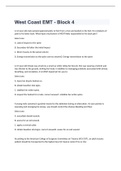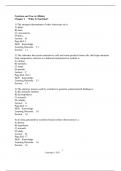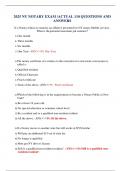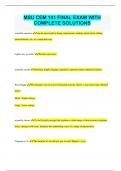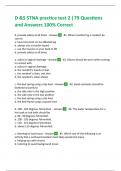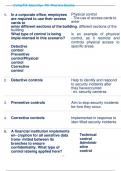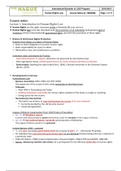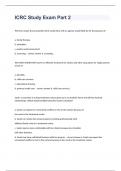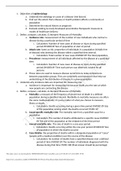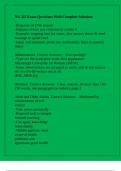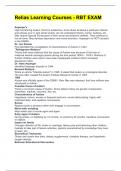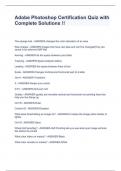MA bay colony govt 1630-85:
-reinforced ideology groundwork
-10,000 puritans migrated 1630-52
-economy became strong (lumber, fur, fishing) -merchant trading class
-puritans still dominated government (religious element)
-Charles I executed in 1649
-Charles II wanted church of E established
-people of Salem resented this and became more resistant to him
-puritans believed that church of E was too similair toRoman catholic church and that all practises
and beliefs not rooted in bible should be eliminated
-residents in Salem required to pay tax
-puritans did not want progressive nature
-non puritan members of government could be banished
-Charles II wanted to extended influence so he centralised control, MA was the most resistant of the
colonies in New England
Royal Charter:
-Charles wanted to revoke in 60s and 70s
-resistance did not allow this
-dies in 1685 so less pressure
-James II took English throne (Catholic)
-Sir Edmund Andros – governor over region under James, also worked in court
-Andros was under willing to include local puritans on his council making him unpopular
-policies led to Glorious Revolution
-wanted to fulfil Charles wishes
-centralised control
-MA suspected catholic sympathies or catholic revolution (fear of popish plot)
-introduces new taxes based on import and export tax duty
-did not have any tax laws before
-caused resentment
-Britain saw this colony as a financial drain
, -Accusations based on land ownership, was made void due to MA bay colony govt
-increased Indian attacks
-source of people questioning who owns what led to accusations
Glorious revolution: April 1687
-James II issued declaration of indulgence which suspended penal laws against Catholics
-led to a knock-on effect: 7 bishops refused to issue a second one in 1688
-threats from William of orange led to James fleeing the country in 1688
-these issues at home pushed empire issues to the side
-James tried to gather own army in Ireland but lost Battle of Boyne 1690
-fuelled revolution in MA against Sir Edmund Andros in April 1689
-hidden meetings led my increase and cotton in Boston
-Andros tried to ban these as he saw them as conspiring against him
-military assembled own group and stopped serving Andros
Cotton and increase M well known, in position to lead negotiations from 1688-92 in London
-increase Mather returned to MA with William Phips (trials already started)
-in April 1689 he had turned against Andros and claimed that he was in support of William of O
-Andros attempts to flee
-sent to England to face trial and became governor of Virginia (highlights power vacuum and symbol
of James gone)
-William 3rd on throne and franchise based on property ownership
-all officials should be appointed by crown
-Phips could block any laws
-people of Salem believed that their life had been disturbed by devil (puritan belief is that devil is
ever-present)
-outside forces came to disrupt counter-reformation (tax, land voting)
-less puritan representation
-lack of legal authority
-looming Indian threat linked with economic crisis (lack of troops or support from England due to
domestic issues)

